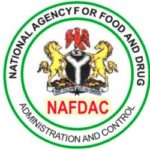The naira closed slightly weaker at ₦1,529.22 per dollar on Tuesday at the official Nigerian Foreign Exchange Market, compared to ₦1,528.33/$ recorded on Monday, according to figures published on the Central Bank of Nigeria’s website.
This marginal dip follows the recent resumption of international transactions on naira-denominated cards by several banks.
Institutions such as United Bank for Africa, Wema Bank, GTBank, and FirstBank recently reintroduced the service, with varying spending limits between $500 monthly and $1,000 per quarter.
The return of this service was anticipated to drive up demand for foreign exchange in a market that has maintained relative stability in recent weeks. At the parallel market, however, the exchange rate remained unchanged, with CardinalStone reporting a steady ₦1,540/$.
In a mid-year review, analysts at CardinalStone forecast that the naira would “remain largely range-bound in H2’25 at ₦1,550.00 — ₦1,635.00/$.” They noted that during the first half of the year, naira stability came under pressure due to intensified global risk aversion stemming from U.S. trade policies and rising geopolitical tensions.
“These external shocks led to FX outflows of $22.83bn, as some investors shifted capital to US Treasuries and Gold. In response, the CBN was active in the FX market, selling $4.72bn in the period,” the analysts stated.
Addressing concerns over the CBN’s interventions, CardinalStone clarified: “We do not believe these interventions signalled a return to a fixed exchange rate regime or reflect an attempt to target a specific level for the naira. Rather, the current FX framework allows for discretionary interventions in the presence of perceived market distortions.”
The firm added that much of the volatility in the first half of 2025 was driven by external pressures rather than domestic issues. “Moreover, it is clear that the distortions witnessed in H1’25 largely stemmed from global factors and not idiosyncratic factors, as the CBN has taken steps to improve transparency. The bank’s average monthly FX intervention came in at $786.58m, materially lower than the $2.30bn pre-COVID and $1.38bn post-COVID levels previously used to defend the naira at unsustainable levels, despite underlying macro weaknesses. Encouragingly, both local and international observers now generally agree that the naira is trading close to its fair value.”











